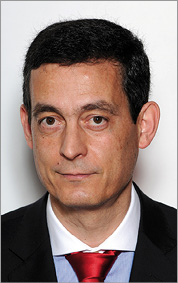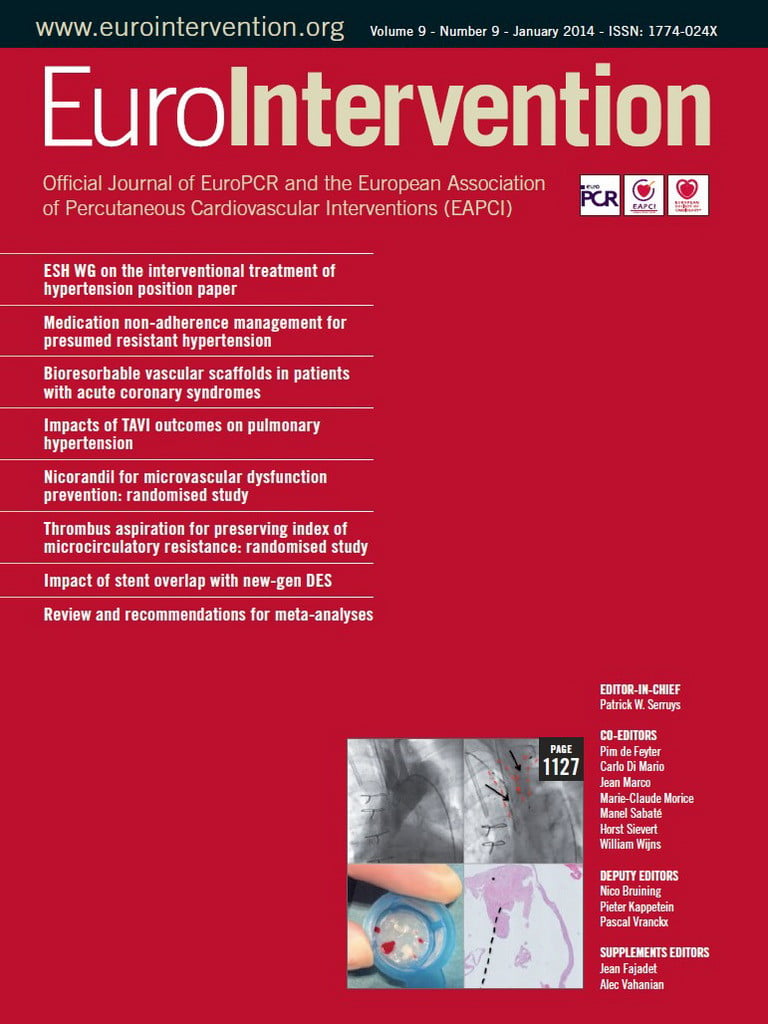NEWS
■Stent for Life Forum Conference 2014
The 3rd international SFL conference dedicated to STEMI patients’ management in Europe and beyond will take place from 27 February to 1 March 2014 in Prague (Czech Republic). Interventional cardiologists, government representatives, patients’ organisations and industry partners are encouraged to attend.
■Women by EAPCI
A new EAPCI community vision in understanding gender-related disparities to attain gender equality in interventional cardiology. For more information, please visit http://www.pcronline.com/ eurointervention/66th_ issue/130b/
■Resistant Hypertension Course 2014
The second European Resistant Hypertension Course takes place in Berlin from 20th to 22nd February 2014. New this year will be the introduction of interactive case-based sessions will allow integration of all aspects of patient management, together with a new format to discuss the various devices.
EAPCI Training & Education Committee
An interview with Lino Gonçalves, Co-Chair, EAPCI Training & Education Committee
What is the objective of the committee?
Together with co-chair Martine Gillard, it is the task of the committee to support EAPCI members both in training and also members who are already qualified, using the seven main EAPCI chapters of the core curriculum. One of the best tools we have to achieve this is the ESCeL Platform.
What are the main projects that the Committee is currently working on?
Today, when we see how the ESCeL Platform has developed, we can see that all the pieces are starting to come together, both from the EAPCI and the ESC. The platform is a 24-month training programme in interventional cardiology, which contains 48 modules and 450 multiple choice questions (MCQs) culminating in a certificate of excellence for the successful trainee. At the moment, this certificate has no legal status, but we have seen that some centres are requiring candidates to obtain it, leading us to believe that in the near future, this certificate could be legally recognised. For senior practitioners, this platform can help them get up-to-date as it contains the most relevant material available.
What are the goals for 2014 ?
This year we hope to achieve the launch of the second version of the platform, which will feature extra language possibilities. For example, national societies can upload their own language material to the platform to make this more accessible to their local trainees and seniors. It will be the societies themselves who will be responsible for the quality of what they upload. Another feature is that a national society may request that their outstanding material be translated into English and shared with everyone on the platform. We believe this to be a very interesting feature, which can bring a national educational experience to an international audience. We believe this has the potential to be one of the most important achievements of our committee in 2014.

Lino Gonçalves, MD, PhD, FESC
Cardiology Department, Coimbra’s Hospital Centre and University, Coimbra, Portugal Faculty of Medicine University of Coimbra, Coimbra, Portugal

